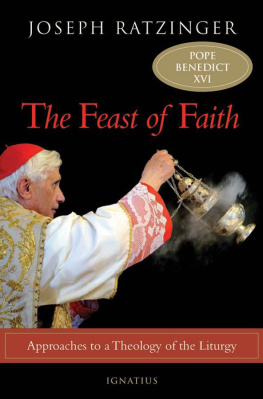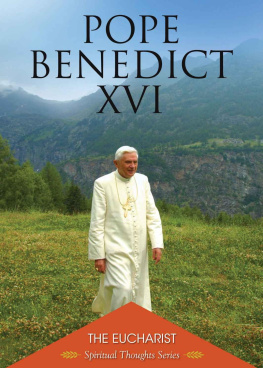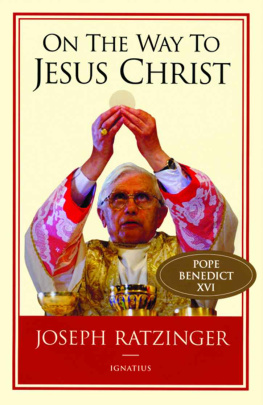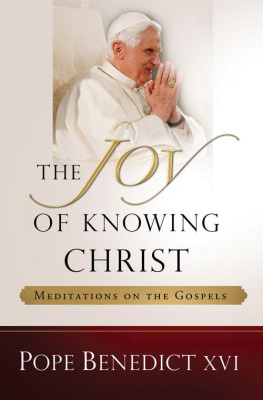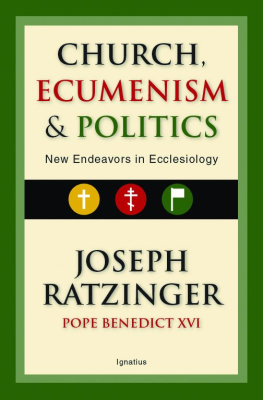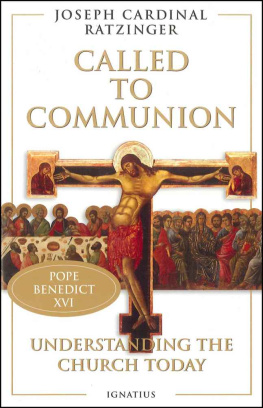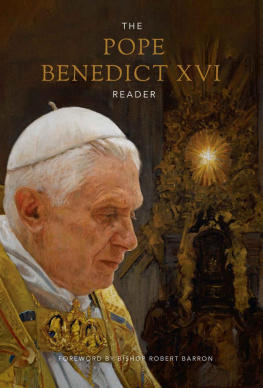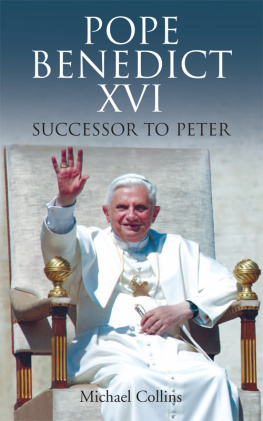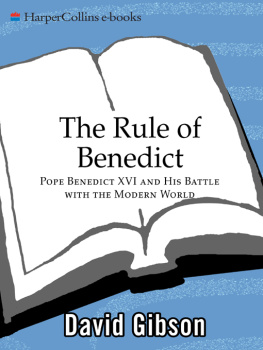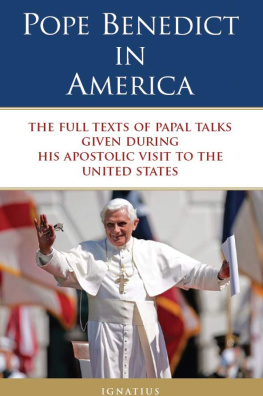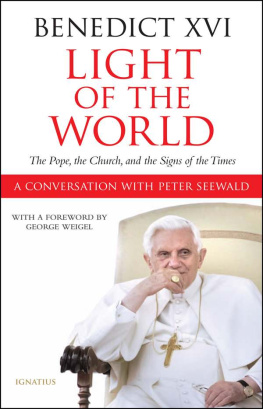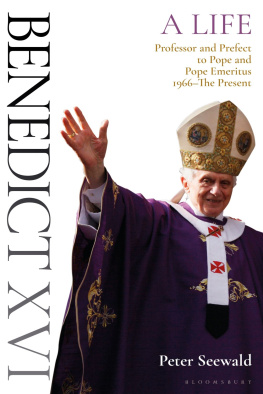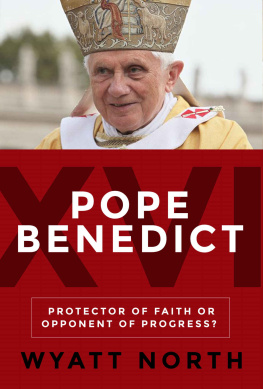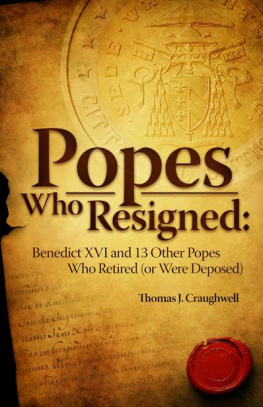WASHINGTON, D.C.
FOREWORD
The Urgency of a Human Ecology
Translated by Marta Brown.
In recent years, photovoltaic panels have been installed on the roof of the principal auditorium of the Vatican to produce electricity from the Roman sun. Its dining rooms now benefit from a solar cooling system. To compensate for its carbon dioxide emissions, the Vatican has begun to cultivate a several-hundred-acre climatic forest in Bkk (Hungary), thereby becoming the first climatically neutral country. Although it is true that the Vatican is the smallest country in the world, it is also true that in matters of ecology one cannot give advice to others if one does not start by applying that advice to oneself. In this field, witness has a greater value than discourse.
Nevertheless, discourse and documents are necessary: The existence of such catastrophes challenges us, said Benedict XVI on June 9, 2011, while meeting with some new ambassadors. Man comes first and it is necessary to remember this. Man, to whom God has entrusted the care of nature, cannot be dominated by technology and become an object of it. Such consciousness must bring all countries together to reflect on the near future of the planet, considering their responsibilities toward our lives and toward technology. Human ecology is an imperativenecessity. Adopting a way of life that is respectful of the environment in every circumstance and sustaining the research on and the utilization of adequate energies that safeguard the patrimony of creation and do not harm man, should be political and economic priorities. In this sense it becomes necessary to completely rethink our approach toward nature; nature is not only a resourceful or entertaining place. It is the place where man is born, his home.
I think that behind the widely accepted figure of the great intellectual we can distinguish another interesting figure; some people have called Benedict XVI the green pope. Is this really true? The pontiffs have been discussing ecology for a long time: encyclicals, messages, and talks often confront the problem of human responsibility toward nature and the climate, yet everything happens as if a screen made their words inaudible. Why? There are structural causes for this lack: the Catholic parameterslong duration, patience, maturation, rootednessare different from those of Western societiesinstantaneity, the ephemeral, the anxiety of progress at any cost.
There is a second, more frightening difficulty. It takes on the form of an argument that is often repeated and presented as a reprimand: Christianity would have provided the ideological matrix of a certain modernity, which, considering nature as an ethically mute mine with inexhaustible resources, has conceived of progress as an almost infinite growth and development. This argument contains a measure of truth. There was in fact a current of thought, presented as the modern version of Christianity, which played this role. According to it, man would be at the center of the universe, which he would have to subordinatewith the genius of his science and technology. This vision, which begins in the seventeenth century, is founded on the philosophy and the mechanistic conception of Descartes and develops into the so-called liberal theology. The latter, often of Protestant origin, presents Christianity as a religion which is radically different from all other religions.
Traditional pagan religions proposed a close and harmonious relationship between man and nature, which they believed to be inhabited by superior forms. They offered an ideal of life in the form of ancestral wisdom. According to this succinctly described current of thought, Christianity is essentially a historical religion, because God intervened in the history of man. Therefore it is necessary to look at history and not at nature to find the sense of human existence, to the future and not to our ancestors, at prophecy and not at wisdom.
This current of thought has played a predominant role since the end of the nineteenth century and for two-thirds of the last century. However, it is subject to the following reprimand: this Christianity did not preoccupy itself with nature nor with the elements connected to it.
Is it necessary to remember that Christianity is manifold? Other Christian traditions have emphasized the perception of nature as benevolent, a fountain of teaching entrusted to the respectful management of man. If I look at your sky, the work of your hands, the moon and the stars that you set in place, what is man that you should remember him? (Ps 8:4). De facto, since the origins of Christianity, there have been authors, and not unimportant ones, who have advocated for a harmonious relationship between man and creation. Origen believed that there wasa resemblance between all creatures, obviously different from that of the human creature with the Creator. In the fourth century, Basil of Caesarea affirmed that the world is the school of rational souls and the place in which one educates oneself in the knowledge of God, because He offers to the soul, through visible and sensory things, a guide to the penetrating knowledge of invisible realities (Homilies on the Hexaemeron I, 6).
Maybe we are more attuned with the poetic figure of St. Francis of Assisi, who preached to all the creatures with a great interior and exterior joy, as if they were capable of feeling, of intelligence, and of speaking (testimony of brother Leone). This poetic mood will continue into the present time and is particularly strong in poets like Pguy.
Benedict XVI outlines a very clear choice between these two Christian visions. If we want to understand Christianity again, Cardinal Ratzinger wrote, and live it in all its depth, we have to peremptorily rediscover the cosmic dimension of revelation (Introduction to the Spirit of the Liturgy). Thus, he breaks off from the first current of thought, which had exercised a more determined influence in Germany than in other places, and sides with what I would call the Franciscan line.
Joseph Ratzinger was the closest collaborator of Pope John Paul II, who greatly revered the figure of St. Francis of Assisi because his message invited one to break with violence and possessiveness, to change one's vision of nature, to feel for it a vital familiarity, and to decipher the world as a divine word. In the course of his pontificate, Pope John Paul II indicated the economic system that plunders the planet. The encyclical


